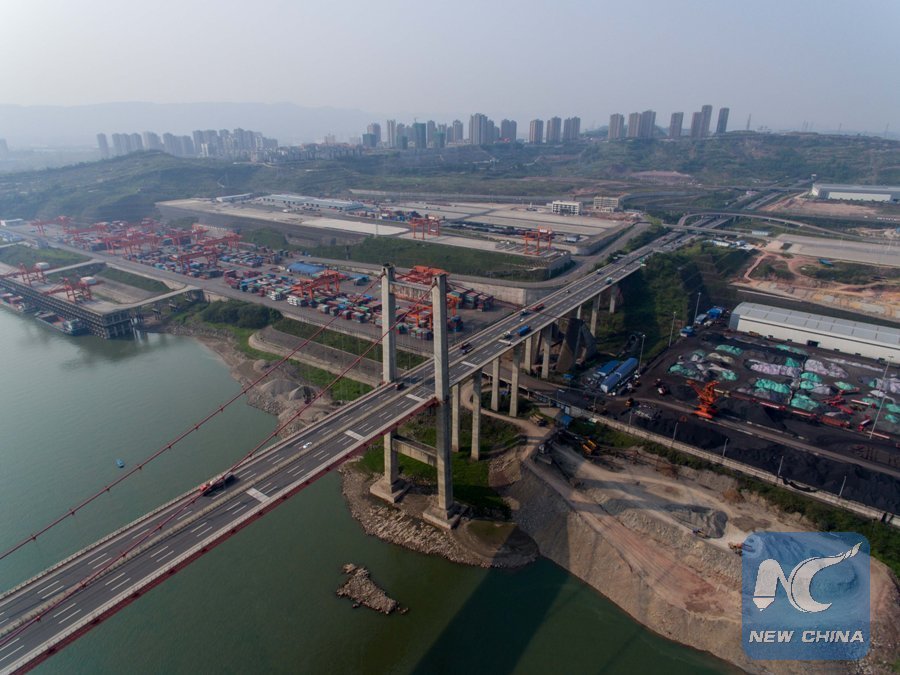
Aerial photo shows a view of Guoyuan port on the Yangtze River in Chongqing, southwest China, April 7, 2017. (Xinhua/Liu Chan)
NEW YORK, May 11 (Xinhua) -- With the increasingly important place of digital in the global economy, the Belt and Road initiative will evolve into a "smart highway carrying information, knowledge, and services across continents, not just goods," predicts a U.S. expert.
"These technologies will certainly transform cities in the next decades...we expect there will be a similar transformation in infrastructure around the world, including the Belt and Road initiative, "Jerry Hultin, co-founder of Global Futures Group (GFG), a consulting firm on creating Smart Cities, told Xinhua at a recent meeting hosted by the World Trade Week New York City.
Hultin was referring to 21st century technologies such as broadband and wireless, mobile phones, global location services (like GPS), big data, the Cloud, autonomous vehicles and predictive analytics.
He said that the use of such technologies will show up from start to finish in the Belt and Road Initiative: In its design and construction, using geo-data and computerized design; in its operation and maintenance, using sensors to monitor its performance; and in the transportation systems that travel across it, such as driver-less trucks.
The Belt and Road Initiative proposed by China in 2013 consists of the Silk Road Economic Belt and the 21st-Century Maritime Silk Road. It aims to build a trade and infrastructure network connecting Asia with Europe and Africa along and beyond the ancient Silk Road trade routes.
A smart city is an urban development vision to integrate information and communication technology (ICT) and Internet of things (IoT) technology in a secure fashion to manage a city's assets.

